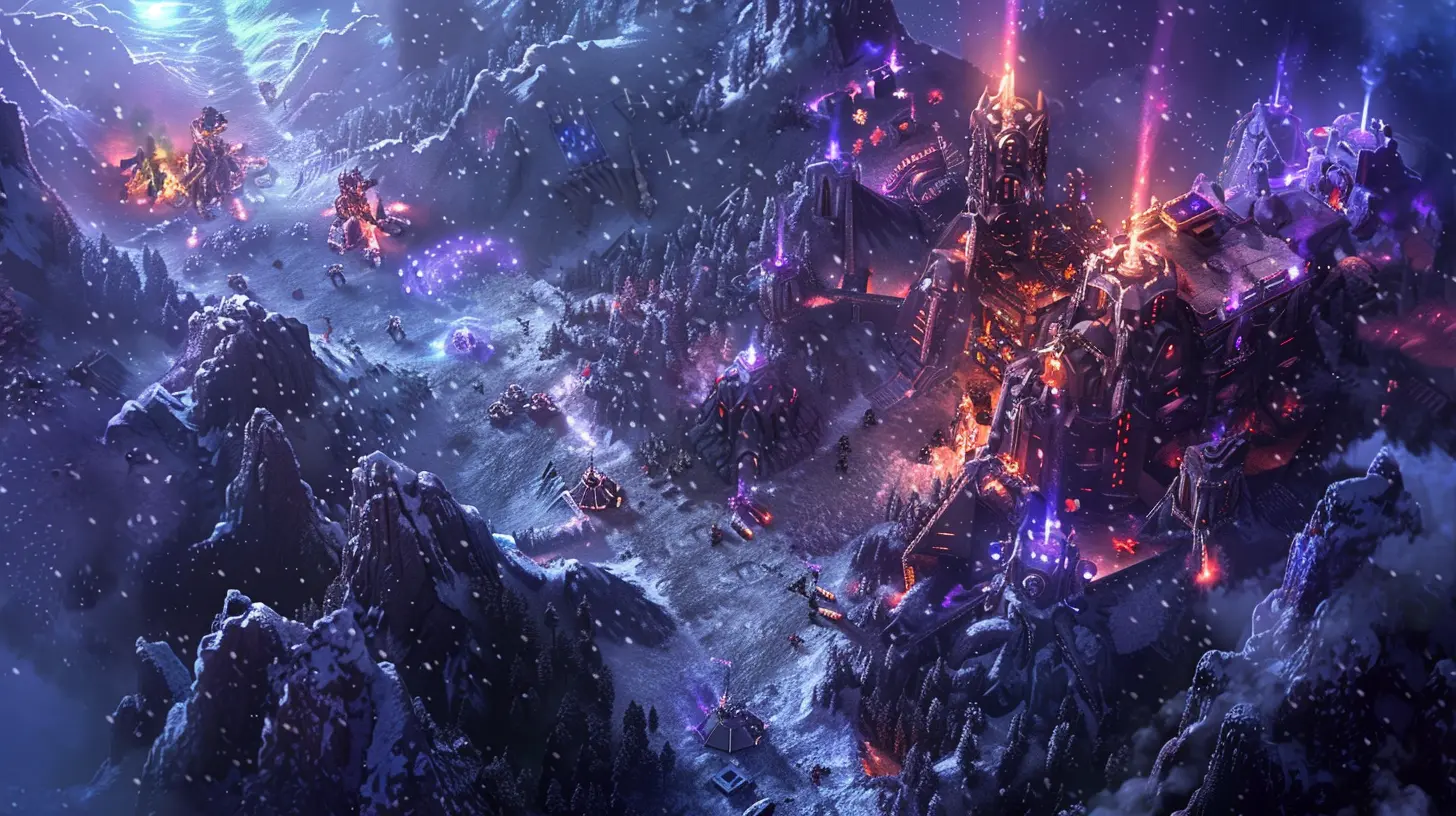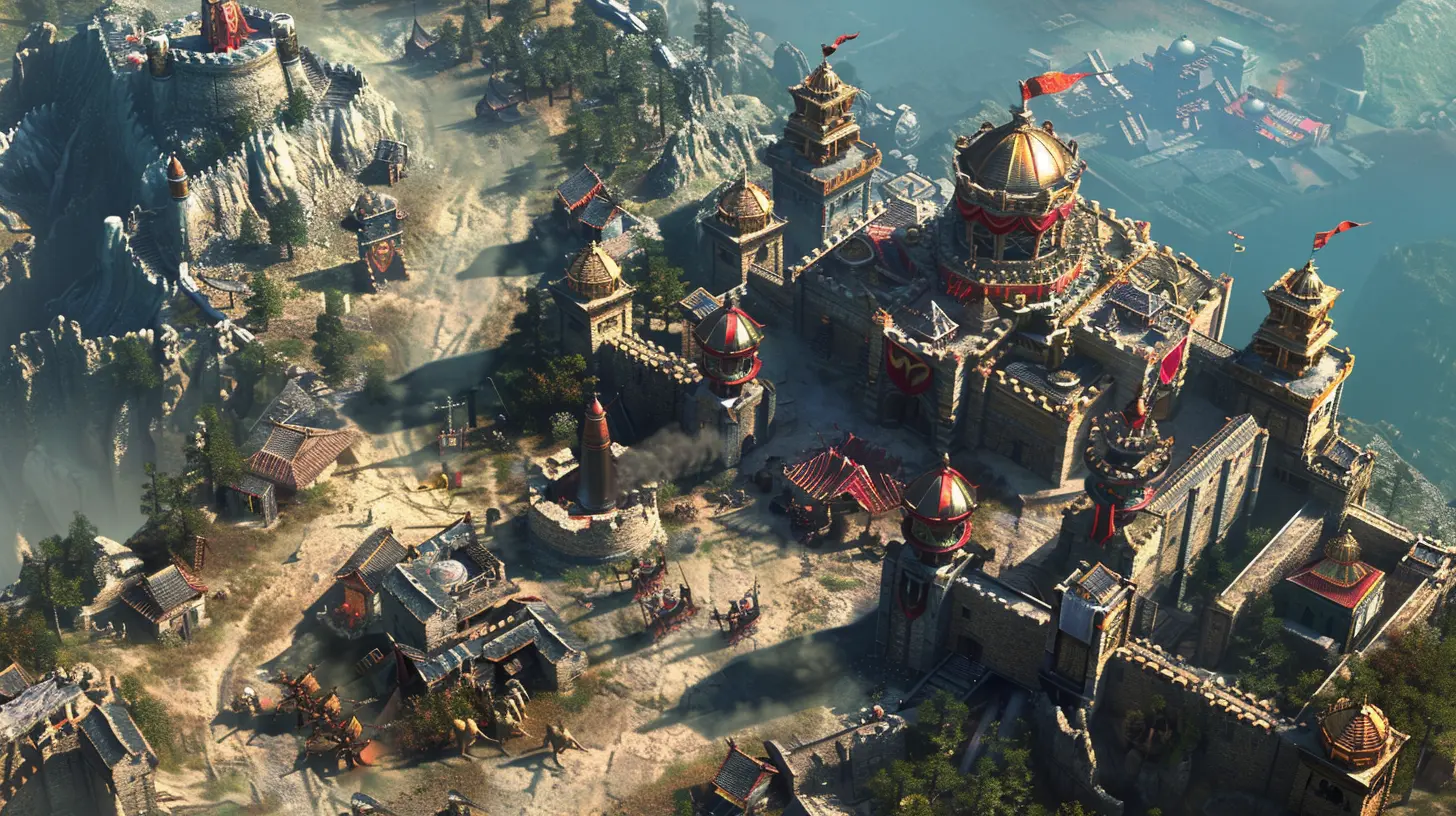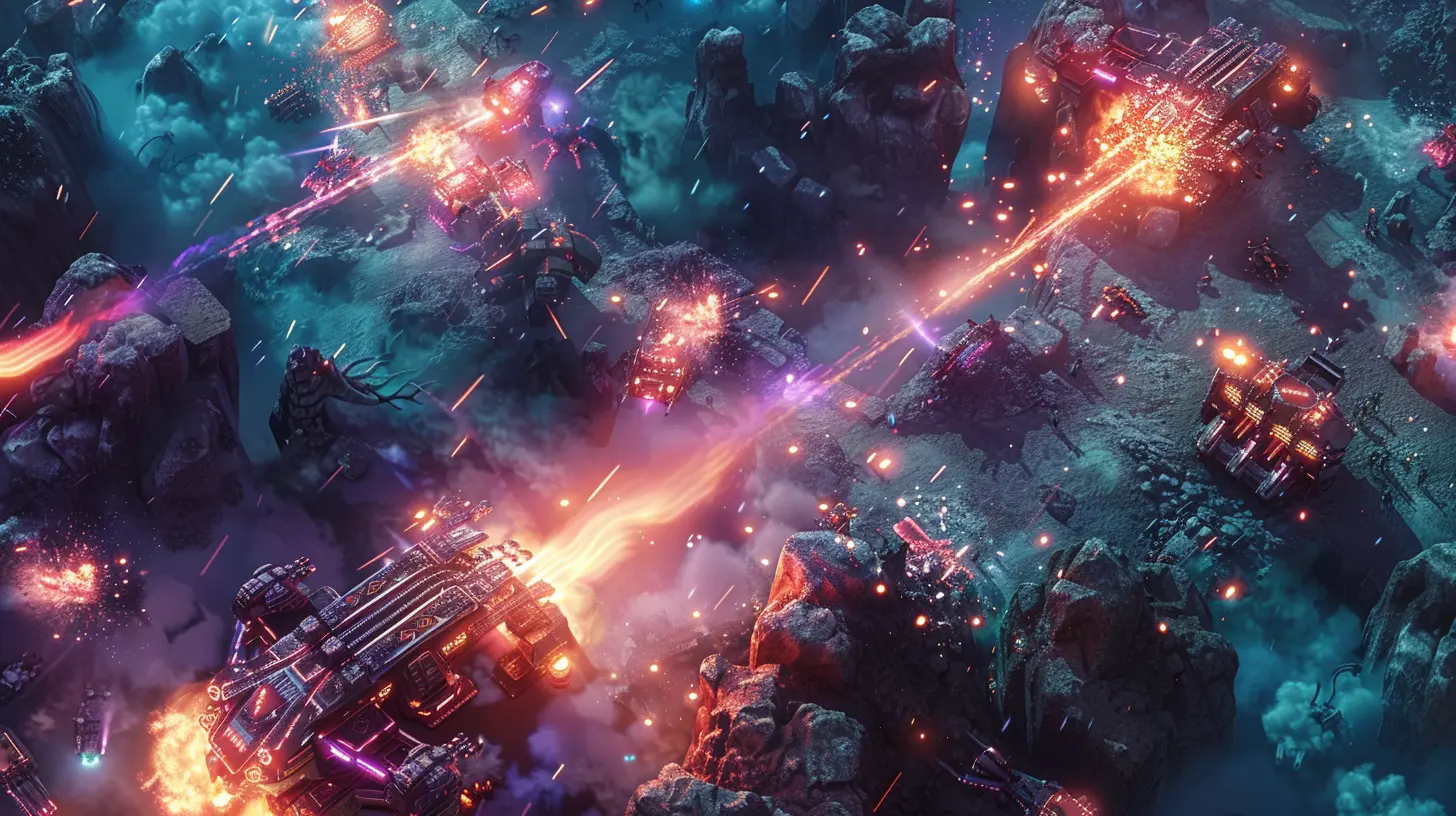Why Cooperative RTS Games Are Gaining Popularity
14 November 2025
Real-Time Strategy (RTS) games have been a cornerstone of gaming culture for decades. From commanding armies in “Age of Empires” to outmaneuvering enemies in “Starcraft,” RTS games have tested the brains and reflexes of gamers worldwide. But there’s been a shift lately. People aren’t just going solo in the RTS world anymore—they’re teaming up. Cooperative (or co-op) RTS games are gaining traction like never before. Why is that happening? Let’s take a closer look.

The Rise of Co-op: Why Are We Teaming Up?
Gaming in general has evolved massively over the years. It’s no longer just about sitting alone in a dark room, staring at the glow of a monitor. Multiplayer gaming has taken the spotlight, and cooperative play is a huge part of that. Co-op RTS games stand out in this transformation because they let players strategize and win together. But why does this matter so much?It’s simple—humans are social creatures. We thrive on working together, whether it’s taking down a boss in an MMORPG or building something awesome in Minecraft. RTS games, with their intense strategy and coordination, are a perfect playground for this. Instead of the pressure of outsmarting another person, your main goal is to collaborate and solve problems as a team. And let’s be honest, sometimes it’s just more fun to share the victory (and the blame when things go sideways).
Shared Victory (and Defeat)
Co-op RTS games create an entirely new way to experience victory. You’re not just patting yourself on the back for outwitting an AI or crushing another player. Instead, you share the satisfaction of a well-coordinated plan coming together with your teammates. It’s like pulling off the perfect heist in a movie—everyone plays their part, and the end result is greater than the sum of its parts.But the same goes for defeat. If your base gets utterly annihilated, you’ve got a whole team to laugh (and cry) with you. That shared experience—whether good or bad—builds camaraderie that solo play just can’t match.

What Sets Cooperative RTS Games Apart?
So, what exactly makes co-op RTS games different from traditional ones? Isn’t it just the same gameplay but with more people? Well, not quite. Co-op games have unique dynamics that set them apart from their single-player or competitive counterparts.Division of Labor
In a cooperative RTS, tasks can be divided among players. While one player might focus on building the economy, another could concentrate on creating an army, and someone else could handle scouting and map control. This division of labor mirrors real-world teamwork, where everyone has a specific role to play. It’s like being part of a pit crew in a race—every role is critical for success.This shared workload often reduces the "overwhelm" factor that RTS games can sometimes have. Let’s face it—managing resources, armies, and tech trees all by yourself can feel like juggling flaming swords. With co-op play, everyone chips in, making the game more approachable, especially for newcomers.
Dynamic Strategies
Two (or more) heads are better than one, right? Cooperative RTS games allow players to brainstorm strategies together, leading to creative and dynamic approaches to challenges. Your teammate might notice something you didn’t—a weakness in the enemy’s defenses or an opportunity to attack. It’s like having a chess partner who sees the board from a different perspective, which can make the game more exciting and unpredictable.Moreover, co-op strategies often evolve in real-time based on the unfolding game. You might start with one plan but pivot to another based on your teammate’s suggestions. This kind of flexibility keeps the gameplay fresh and engaging.
Amplified Replayability
Let’s talk about replay value. Cooperative RTS games tend to have incredible replayability. Why? Because no two games are ever the same. The experience changes based on who you’re playing with, how you’ve divided responsibilities, and what strategies you’re trying this time around. Add to that the constant updates and tweaks many developers make to keep things interesting, and you’ve got a recipe for endless fun.
The Role of Technology in Co-op RTS Games
Technology has played a massive role in boosting the popularity of co-op RTS games. The rise of reliable online multiplayer platforms, faster internet speeds, and cloud gaming services has made it easier than ever for friends (or even strangers) to team up. Gone are the days of awkward LAN parties where everyone had to huddle in one room with unwieldy cables.These advancements have also opened the door to cross-platform gaming, meaning you can play with friends regardless of whether they’re on PC, console, or mobile. This kind of accessibility has helped co-op RTS games reach a broader audience, uniting players from all over the world.
Streaming and Community Engagement
Let’s not forget the impact of platforms like Twitch and YouTube. Cooperative RTS games are a hit with streamers because they’re fun to watch. There’s something incredibly entertaining about seeing a team work together—or totally implode under pressure. Viewers feel like they’re part of the action, rooting for their favorite streamers and strategizing in the chat.This communal vibe has spilled over into how people play these games themselves. Gamers want to replicate that sense of teamwork and shared experience, bringing more players into the co-op RTS world.

Why Now? Timing Is Everything
Okay, so we’ve established why co-op RTS games are fun, but why are they suddenly blowing up in popularity? A few key factors have helped shape this trend.Pandemic-Induced Gaming Boom
Let’s call it what it is: the COVID-19 pandemic made us all a little more connected to our gaming consoles and PCs. Stuck at home, people craved social interactions, and gaming provided a much-needed outlet. Cooperative RTS games, with their blend of strategy and teamwork, became an easy go-to for anyone looking to stay connected with friends or even make new ones.With so many people rediscovering their love for gaming during this period, the RTS genre got a fresh wave of attention. And while older RTS games could be intimidating for new players, the cooperative aspect helped bring more people into the fold.
Casual-Friendly Features
Game developers have also done a great job of making RTS games more accessible. Tutorials, difficulty scaling, and user-friendly interfaces have lowered the barrier to entry, making it easier for players of all skill levels to jump in. Many co-op RTS games also include AI opponents, which means you don’t have to worry about getting steamrolled by an experienced human player while you’re still figuring things out.Rise of Hybrid Genres
Let’s face it—pure RTS games aren’t as common as they used to be. But what we’re seeing now is the rise of hybrid games that blend RTS elements with other genres. Games like “They Are Billions” mix real-time strategy with survival and resource management, while “Northgard” combines RTS gameplay with 4X strategy mechanics. These hybrids often include co-op modes, making them even more appealing to a broader audience.Looking Ahead: The Future of Co-op RTS Games
So, what’s next? The future of cooperative RTS games looks incredibly bright. With advancements in AI and procedural generation, we could see even more sophisticated challenges and dynamic maps. Imagine an RTS game where the enemy adapts to your strategies on the fly, forcing you and your team to constantly rethink your approach. Exciting, right?We’re also likely to see more narrative-driven co-op RTS games. Storytelling has become a huge focus in gaming, and RTS games are uniquely positioned to deliver epic tales of war, survival, and exploration. Adding cooperative play to these narratives creates an experience that’s not just about winning—it’s about sharing an adventure.
Wrapping It Up
Cooperative RTS games are more than just a trend—they’re a natural evolution of how we love to play games. They combine the best parts of the RTS genre (strategy, complexity, and depth) with the joy of shared experiences. Whether you’re teaming up with friends, family, or strangers online, co-op RTS games offer something special: the chance to strategize, laugh, and win together.So, why are cooperative RTS games gaining popularity? Because they scratch that itch for teamwork, bring people together, and give us a fresh way to enjoy one of gaming’s most beloved genres. If you haven’t tried one yet, what are you waiting for?
all images in this post were generated using AI tools
Category:
Real Time StrategyAuthor:

Emery Larsen
Discussion
rate this article
1 comments
Phoenix Morrow
Great read! It's fantastic to see cooperative RTS games gaining traction. There's something special about teaming up with friends, strategizing, and conquering challenges together. Whether you're building empires or battling foes, the camaraderie makes every victory sweeter. Keep up the amazing work, and let the alliances flourish!
November 19, 2025 at 4:54 AM

Emery Larsen
Thank you for your kind words! I completely agree—cooperative gameplay truly enhances the experience and brings a unique joy to strategizing with friends. Excited for what’s to come!


